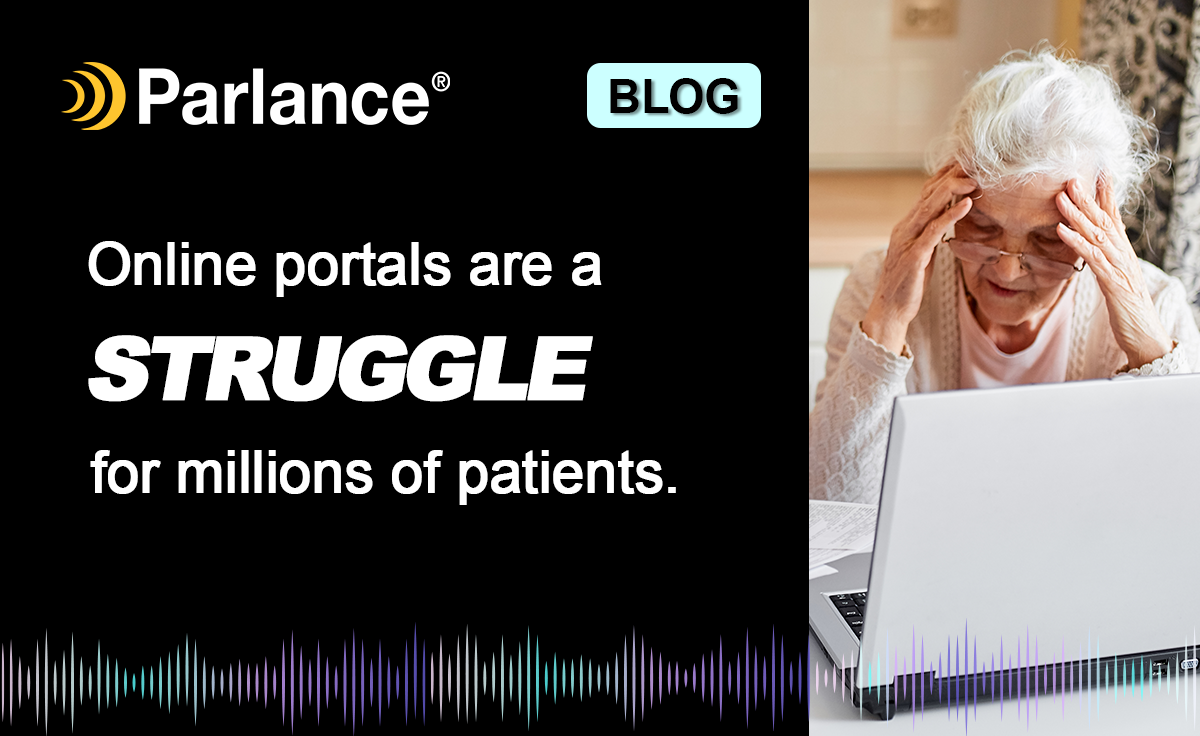How Conversational AI Advances Health Equity for Hospitals and Clinics
Using healthcare portals and web-based chats is a challenge for millions of patients. For some it’s a technical challenge, for others it’s a physical challenge, and for others it’s about familiarity and preference.
- 38 million Americans live in poverty, with over 40% of impoverished adults lacking access to computers. When health systems choose an online-first approach, they are prioritizing more privileged individuals.
- 30 million Americans have limited English proficiency. Patient portals and websites are hard to navigate for people who speak other languages.
- 21% of Americans suffer from osteoarthritis in their hands. Those with arthritis and similar hand ailments struggle to use computer keyboards, making online processes painful.
- 21% of Americans are illiterate. The only way to provide equitable access to healthcare is to let them use the phone.
- 71% of Baby Boomers choose to get in touch with their provider over the phone, preferring the comfort of personalized help from a human agent.
These statistics highlight a critical societal challenge: many individuals face hurdles that contribute to a vicious cycle of poor health outcomes. Digital transformation initiatives benefit some patient populations over others, when modernizing the voice channel is not part of those efforts.
While 40% of impoverished adults lack a computer — only 6% of impoverished adults lack a cellphone. Neglecting to address the phone as part of digital transformation robs vulnerable populations of easy access to care.
How Healthcare Organizations Can Improve Equity and Access to Care
Health systems need to modernize the phone to foster equity among disadvantaged consumers and to prepare for sudden influxes of demand. The shift to online portals and web chats has often precluded modernization of the voice channel. When healthcare organizations implement conversational AI to ease communication in the most widely used channel, it benefits the greatest percentage of healthcare consumers, regardless of their wealth, disability, reading level, age, or spoken language.
To illustrate a recent and relevant example of the healthcare inequity that arises from neglecting to modernize the phone as part of digital transformation initiatives: Hurricane Milton left more than three million Floridians without power and internet. Right now, local hospitals and clinics without a modern voice channel are presenting a tall barrier for individuals who need care the most. No one asks to be sick, and no one asks for a hurricane – health systems need to meet people where they are, no matter their circumstances.
Achieving greater equity requires a people-centered digital transformation in healthcare. It’s vital to use conversational AI to assist the widest population of patients and caregivers, despite any social determinant (or natural disaster).
The more health systems that choose to prioritize the phone as a part of digital transformation initiatives, the closer we get to our goal of eliminating healthcare disparities.
By Ali Karasic




